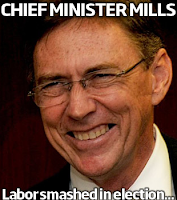| |||
Two Days in March 2016This process and conference on Monday 21 March 2016 forms part of a series of reform events hosted by Civil Society Australia in 2016. Two events will be held in March 2016. Participants may attend one or both of these as they wish. Monday 21 March 2016 Reforming NDIS Revolutionising Disability Services Tuesday 22 March 2016 Reforming Mental Health Breaking the Inertia in Reform Venue
The Angliss Conference Centre is located in the Melbourne CBD, on the corner of LaTrobe and King Streets, on the fifth floor. It is close to train and tram services. Flagstaff railway station is one block away in LaTrobe St, and Southern Cross station is three blocks away in Spencer St. Trams 23, 24, 30, 34, and City Circle run along LaTrobe Street.
There are numerous accommodation options close by, to suit all budgets.
Start and Finish Times
Both events begin at 9.15am, finishing at 5.00pm.
Further Information |
| Civil Society Australia. |
 |

























